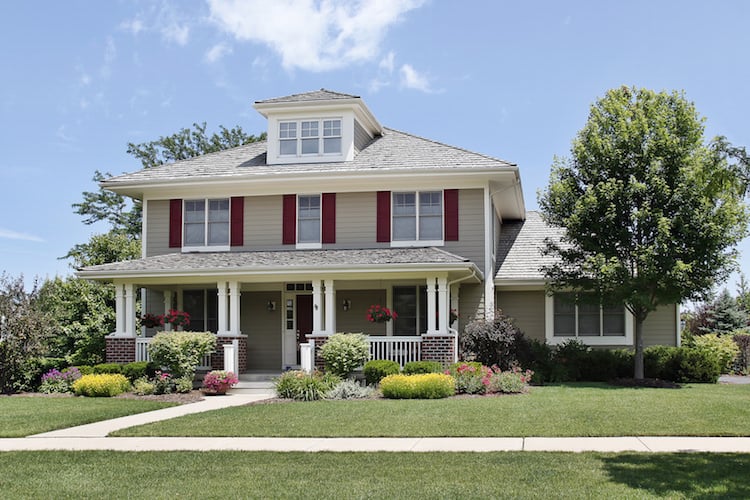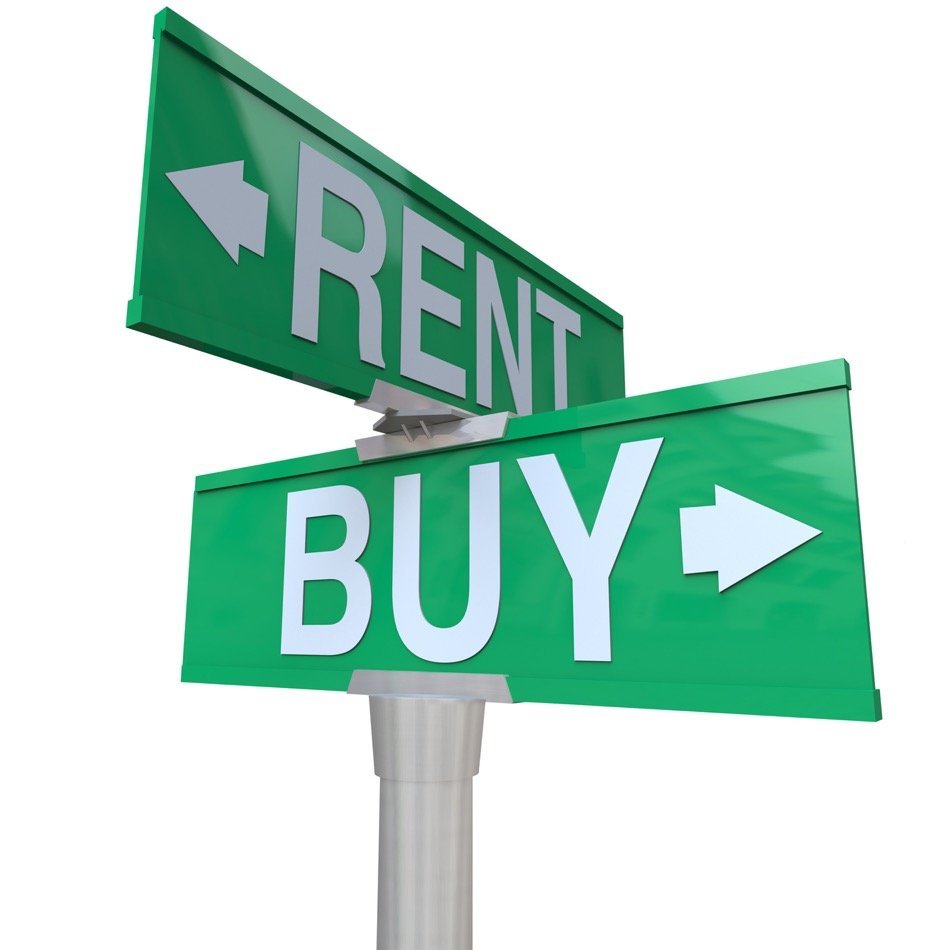Should you Rent or Should you Buy in Nashville?
Posted by Gary Ashton on Friday, September 14th, 2018 at 3:59pm.
 The debate between renting and buying has been going on for years. It's something many are faced with, especially when moving to a new city. Here are some of the things you should consider if you're thinking about buying or renting a home.
The debate between renting and buying has been going on for years. It's something many are faced with, especially when moving to a new city. Here are some of the things you should consider if you're thinking about buying or renting a home.
For informational purposes only. Always consult with a licensed real estate professional before proceeding with any real estate transaction.
How to Determine if You're Ready to Buy
Nashville's real estate market has been red hot for quite some time now, prompting many home buyers to act fast when looking for a new place to live. With home prices constantly on the rise and competition among other buyers only getting stronger, the home buying process can be even more stressful than normal right now, which is why it's important to take a step back, take a deep breath, and try to make the best decision possible if you're someone currently in the market for a Nashville home or condo. While the ultimate goal may to eventually buy a home, jumping into the process too quickly is never a good idea. So before you even begin a home search during such a crazy time, check out a rent vs buy calculator and ask yourself the following questions in order to make sure you're truly ready to buy a home:How Secure is Your Job?
While nobody ever envisions getting fired or laid off, most people usually have a pretty good idea how secure their job may be, regardless of the industry. The job market around Nashville is booming right now, which is great news for anybody looking to purchase a home. But before you buy, take a hard look at your individual situation and make sure your job really is as secure as possible.How Much Debt Do You Have?
Even though you might be approved for a mortgage, it's never a good idea to take out a home loan if you have too much debt. If you have a few credit cards that are pushing the limit do yourself a favor and get those paid down before you even apply for a loan. Also thoroughly examine your spending habits—what do you usually charge, how often do you use a credit card, do you rely on a credit card, how high if your monthly rent? These are all things to consider in order to help determine whether you're ready for the commitment of home ownership.Are You Here to Stay?
While things may change that are out of your control, it's best to look at buying a home as a long-term housing solution. Most financial institutions offer home equity loans for 30 years. So if you're not sold on the area and can't be certain you'll want to live in Nashville in another 5 years, buying may not be the way to go.Do You Know What You Want?
If you can answer all these questions and buying a Nashville home still feels like the best direction to take, it's important you know exactly what you want before beginning your home search. In a competitive market, you'll want to move fast so you don't lose out on a home or condo you like.Why Buy a Home in Nashville?
Choosing between buying and renting can be a big decision, especially depending on the city one is buying in. Consider these reasons you might want to buy a home in Nashville, TN.
Understand Why You Might Want to Rent
There are times when it makes perfect sense to rent in Nashville. If you're not sure which neighborhood you want to live in or you're trying to save up a down payment, renting might be the right decision. The desire to live in downtown Nashville is an option that many people consider, as also view this as shorter term commitment as they feel they may only live downtown for a couple of years. This may be a good time to rent a condo is a desirable development like The Icon.
However, you should always rent with the thought of actually buying a home sooner or later. It should be a temporary situation that helps you get to the next level.
Rent in Nashville can be Expensive
The city of Nashville saw some pretty high rent increases throughout the most popular neighborhoods in the past. This is part of why the city became one of the "Best Buy Cities in 2014," on the Forbes list. Increases include:
- 5.9% in Hickory Hollow
- 7.2% in Donnelson, Wilson and Hermitage County
- 8.5% in Briley Parkway and Airport
- 5.5% in Belle Meade and West Nashville
- 6.4% in Murfreesboro Pike and Antioch
These increases make it a better situation for those looking to buy a home.
Nashville: A Top City to Buy in the United States
With Nashville being named as one of the top cities to buy a home in 2014, it makes perfect sense to buy throughout the city. High rental rates and low interest rates usually point to plenty more buying compared to renting.
The Music City is ranked as the fourth best places to invest in a home and the tax deduction given for homeowners is very helpful, as well. If you're considering renting and you could buy a home instead, you may want to reconsider your options in Nashville.

In markets all across the country, rentals have exploded over the past 12 to 18 months, and here in Nashville, downtown apartments have had some of the highest occupancy rates since 2007. As a result, rent prices continue to climb, ultimately making it harder for those living in a Nashville apartment to save for a down payment.
Furthermore, Nashville's limited inventory—for just about anything and everything on the market—is also driving home prices up, additionally making it tough for Millennials and other first-time buyers out there just waiting to finally make a move.
Preparing to Buy a Home When You're a Renter
You've finally reached a point in your life where you plan to be in the same place for longer than a 12 month lease. Instead of making rental payments on a monthly basis, you want to earn equity and have a permanent roof over your head.
But rent doesn't translate into mortgage on a simple 1:1 ratio—a lot more goes into the transition than you might think, from the upfront costs involved to what happens if your dishwasher malfunctions and spews food flavored water all over your floor.
As you prepare to pick up the torch of home ownership, the folks at ABODO suggest you keep these five things in mind, and you'll be just fine - and on your way to building home equity!
Prepare for Upfront Housing Expenses
Say goodbye to the security deposit. When you buy a house, there are a few different fees to contend with. The big one, which poses one of the biggest obstacles for hopeful home buyers, is the down payment. The amount depends on your mortgage, but expect to pay 10% to 20% of the home's value. If you don't have it, there are options to pay much less upfront—sometimes as little as 3%—with private mortgage insurance or a loan through the Federal Housing Administration. These lower down payments, however, make for higher monthly payments and a higher home price overall.
And then there are the closing costs, which average about $2,100 on a $200,000 home. This sum often covers several necessities: home loan origination, title insurance, land survey, home inspection, insurance escrow, appraisal, and more.
Monthly Payments Beyond the Mortgage

Monthly, your mortgage payment can look pretty similar to your rent check. In fact, a recent study found that in the vast majority of states, buying is easier on your pocketbook than renting. You can weigh your options with REALTOR.com's calculator.
Your home is your largest investment, so you'll want to protect it with insurance. Sure, renters insurance was "highly recommended," but homeowners insurance is necessary to protect your investment, your belongings, and your mortgage. Most mortgage lenders require it.
And lastly, you'll want to tuck away money each month for property taxes, which is usually a percentage of the assessed value of the land and the structures on it and is subject to the current tax rate. These rates are highly localized, but the average household pays just over $2,000. Although property tax is generally billed annually or semiannually, many mortgage lenders require that money is put in escrow monthly for the tax.
Home Buyers Must Make A Down Payment and Qualify For a Mortgage
Before renters can buy a home, they need to save for a down payment and must qualify for a mortgage. In order to qualify for a mortgage, the renter must have a steady stream of income, a good credit history and a paper trail that proves their financial stability. For a down payment, most home buyers must have saved at least 3.5 percent of the purchase price of the house, if they're planning to get an FHA loan. Home buyers who plan to get a conventional loan may need as much as 20 percent of the purchase price of the home.
Homeowners Pay Taxes and Homeowners Insurance
Another expense that renters must budget for before deciding to buy a home are property taxes insurance and homeowners insurance. Property taxes vary a lot from one state and community to the next. Property taxes are generally based on a percentage of the value of the house, so a renter who wants to know how much they can expect to pay in property taxes should contact the county assessor.
Homeowners insurance can also vary from one state to the next and one home to the next as well. The average cost of homeowner's insurance is about $1,100 per year. This amount is usually paid as an annual premium.
These two expenses are usually paid monthly, along with the mortgage payment, if the home has been financed with a mortgage. The property taxes and homeowners insurance is then paid when due by the mortgage company from the funds contained in the escrow account. Though homeowners who pay cash for a home will need to pay these two expenses themselves, since there will be no escrow account created for them after they buy the home.
Don't Have Emergency Funds? Now is the Time!
Having a stockpile of special emergency funds isn't specific to homeowners, but it's increasingly important. The bare minimum recommendation before purchasing real estate in Fairview (or elsewhere) is to have at least three months of living expenses to fall back on—rent, food, utilities, and every other bill—but six months is better. Some even go so far as to recommend two years' worth. These funds will protect you in the event of job loss, appliance failure, or major medical bills.
You are the Home Maintenance Crew
Your maintenance budget now must cover more than a package of lightbulbs and batteries for smoke detectors. Aside from the emergency funds you've saved up, you'll want to plan on spending at least 1% of the home's value on maintenance and repair projects each year.
When you move in (and pretty regularly after that) take stock of the appliances you have and what kind of shape they're in to prioritize upgrades and service. When was your furnace last inspected? Is the water heater an original feature of your 1950s home? Price a few out and put that heater near the top of your list—above, for example, an air conditioner or dishwasher. If unused, this maintenance cash will come in handy for larger projects, such as a roof replacement.
More regular maintenance is required of you as a Springfield homeowner (or wherever your new purchase may be), too. That yard you've been dreaming about—it needs to be mowed, often. And that means you need to have a lawnmower. Still doesn't look as naturally manicured as the neighbor's yard? Pick up a weed-wacker to and clean up those edges. Depending on where you live, you'll also need a rake come fall (and leaf bags or a tarp to move leaves to the curb), and a shovel and deicer come winter. Plan ahead to maintain curb appeal - and the home's value.
Most people know that apartment renters aren't responsible for making their own repairs. When something breaks, the renter calls or uses a landlord app to connect with the landlord or property manager, and a repair person is dispatched to fix the problem.
By contrast, homeowners must make their own repairs. Most homeowners must have an adventurous spirit, access to tools, and some appreciation for DIY projects. Homeowners who do not want to handle their own home repairs, or do not have the skill to do so, will ned to hire a professional.
Your Neighbors are Forever (Or At Least For a While)
 This one is the easiest changes to make, and probably one of the most fun. Your neighbors are no longer unseen producers of endless stomping on the other side of your ceiling —they're your allies in the mission to create a great place to live. You don't have to bake banana bread before you go, but you should go introduce yourself and get to know them and their lifestyles a little bit (which is a good thing to do even before you buy). Before you deny their requests to turn down your music at 11 pm—or too aggressively ask the same of them—just remember that they'll still be there the next day. And the day after that. (Forever.)
This one is the easiest changes to make, and probably one of the most fun. Your neighbors are no longer unseen producers of endless stomping on the other side of your ceiling —they're your allies in the mission to create a great place to live. You don't have to bake banana bread before you go, but you should go introduce yourself and get to know them and their lifestyles a little bit (which is a good thing to do even before you buy). Before you deny their requests to turn down your music at 11 pm—or too aggressively ask the same of them—just remember that they'll still be there the next day. And the day after that. (Forever.)
If you are able to buy right now however and have just been waiting for the right time, that time is definitely now. With current mortgage rates staying put for the time being, those who want to take advantage of historically low rates better act fast before we inevitably see a jump, most likely sooner rather than later.
Renters who aren't sure if they are ready to make their own home repairs can assess their readiness by creating a budget and by helping a friend or loved one with home repair projects. It's estimated that most homeowners pay at least 1 percent of the purchase price of their home per year on maintenance. Renters who feel that their monthly budget cannot handle the added expense of home repairs and tools, should consider renting for a while until their finances can handle the extra expense.
For informational purposes only. Always consult with a licensed real estate professional before proceeding with any real estate transaction.

Gary Ashton
The Ashton Real Estate Group of RE/MAX Advantage
The #1 RE/MAX team in the World!
